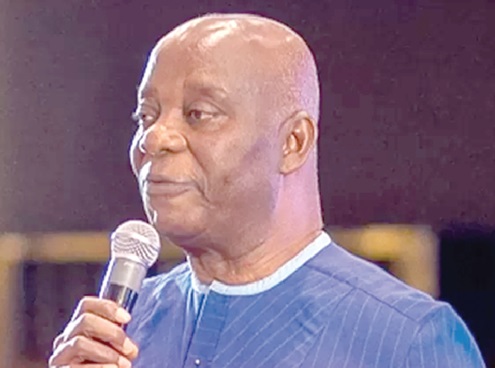
Long campaigning periods cause of corruption — Rev. Dr Deegbe
The long periods of political campaigning are one of the factors increasing corruption in Ghana, a former General Secretary of the Christian Council of Ghana, Rev. Dr Fred Deegbe, has said.
He was of the view that while some countries conducted short campaigns lasting just a month, Ghana's lengthy campaigns, which involved extensive constituency development had been linked to increased corruption practices.
“It is therefore imperative to examine successful financing models from other nations to ensure that political parties are not unduly influenced by their financial backers, preventing the public from being burdened with debt”, Rev. Dr Deegbe said.
Speaking at the National Christian Forum organised by a Christian civil society organisation, Advocates for Christ in Accra, Rev. Deegbe said corruption had risen to a high level with an open display of it through vote buying by people seeking to lead.
Ghana, he said, had come to a point where it needed to go back to the values of truthfulness and hard work.
Context
Ghana's long standing history of corruption has emerged as a significant concern ahead of the 2024 general election, prompting renewed calls for political reforms.
There is also a growing call to make politics more affordable and accessible to young people, while reducing the influence of money in politics.
Governance
Rev. Dr Deegbe expressed disappointment over the country's inability to embrace a governance system based on integrity and meritocracy, particularly in light of its young population, which represented a vast untapped potential that could be harnessed to transform society.
“While these economic models have proven successful for Singapore, they may not be readily applicable to Ghana and other nations that have struggled due to a lack of transparency and ethical governance," remarked Rev. Deegbe.
Effective governance, he said, required a shared vision for the nation's future.
He also highlighted that whereas law and order were essential foundations for national development, it behoved leaders to strive to create a society where everyone felt “safe and secure."
He, as well, expressed concern about the prevailing attitude among the ruling class towards Christians seeking political office, suggesting that this attitude reflected the underlying dishonesty that permeated politics “in our part of the world”.
While calling for reforms of the political establishment in the country, he advocated for measures to foster youth participation in politics while alleviating financial constraints.
Stop being passive
The Head of Churches at Advocates for Christ, Rev. Julius Coomson, in his remarks urged Christians to stop being passive and take a more active role in governance and politics.
He acknowledged that there was a perception that politics was a dirty game and that Christians should not get involved, a perception he argued was wrong.
Christians, Rev. Coomson said, had a responsibility to shape the nation and they could do this by living as salt and light and by speaking truth to power without fear or favour.
“As Christians, we are agents of Christ in the world and we have a responsibility to transform culture”, he said.
He also counselled Christians to act as the conscience of society.
He said there were times when governments or political parties would not care about what was happening in the country, but Christians ought to speak up and speak truth to power.
Prof. Afua Hesse, who chaired the event in her welcome address, said as Christians, they carried the weighty responsibility of upholding the values and teachings of the Christian faith.
“This responsibility extends to individuals as well as leaders.
It is through individual introspection and growth that we can collectively foster a more Christ-like society”, she said.
